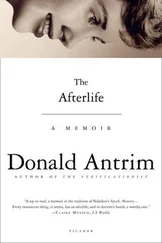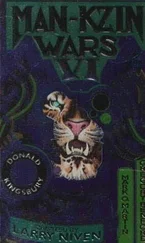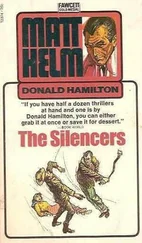“Where is Johnny now?” I asked from over her head.
Her voice dropped, and she sounded, I thought, genuinely grief-stricken, at a loss, when she said, “Junior college.” It was as if she had revealed to me, in saying this, that this boy had sickened and died. Is there anything more painful than the love felt by an adolescent?
She said, “I guess what Dr. Mandelbaum said is true, because I’ve just blurted every last little thing, haven’t I?”
“I really don’t know,” I admitted to her. I was not sure it was a good idea to use a largely unprovable communication theory as the basis for a parlor amusement of the truth-or-dare variety.
Nonetheless I said, without knowing what I meant — without knowing what, if anything, I wished to provoke—“Feelings of mature love often take a long time to come to light, Rebecca.”
And I thought, Love?
“Oh.”
Was she crying? Were there tears? Or was this only an exciting illusion created by the tilted-back angle of her head? Here was a girl who showed a lot of throat. It is always so difficult to judge with certainty the sexual and courtship mannerisms of a younger generation.
“In fact,” I explained to the girl, somewhat in the style of a lecturer in a classroom, “we mainly tell people things we don’t know we’re telling. Let’s take my example. Here I am, as you can see, in Dr. Bernhardt’s arms. Dr. Bernhardt is holding me in the air because he doesn’t want me to throw cinnamon-raisin toast at Peter Konwicki. I don’t really know why Dr. Bernhardt doesn’t want me to throw any cinnamon-raisin toast at Peter Konwicki, who is basically a menace even if he is nice to children, but there it is. Dr. Bernhardt, or Doctor Bernhardt, I should say”—who, I ask, can resist clowning around about people’s university degrees? — “ Doctor Bernhardt saw me preparing to start a food fight, which is something I like to do at a dinner party. He therefore picked me up and started squeezing me, and as a result I’ve dropped the toast and flown out of my body, and now here I am in the air over everyone’s heads, feeling sick to my stomach and hanging on to a pot lid!”
What point exactly was I trying to make? Something about the unconscious and its role in interpersonal communication? I was chattering on about other matters entirely. Was I making sense? Rebecca quickly jotted notes in her flipped-open menu pad. I found this comforting. Also comforting was her manner of occasionally looking up from writing, in order to make fleeting eye contact, then saying, quietly and without interrupting my train of thought, “Hmm,” or “Yes, that’s very interesting.”
It was, I realized, a surprisingly dexterous portrayal of classical analytic attitude — surprising, in particular, from such a young person, and with no training in the field.
On the other hand, it was conceivable that Rebecca was merely taking a break to tabulate bills for her customers at tables and booths, only humoring me until she could politely excuse herself and disappear through the massive, swinging kitchen doors.
I could not, I felt, let this happen. It seemed to me that everything, in that moment of hanging on to the pot lid and looking down at shouting and laughing analysts, at orange and pale white fish swimming in their glass tank adjacent to the cash register and candy-bar display, at plates and glasses carried on trays held high by waitresses squeezing between blue tables and the chairs pushed back by people getting up, after eating, to order drinks, slap one another on the shoulder, and generally work the room — everything, by which I mean something, though I’m not sure what, depended on loving Rebecca and seeing her smile.
“Listen,” I said to this girl standing on solid ground, “I’ve got to fly around up here for a while, and I’d be very happy if you’d join me.”
“Me?”
“Why not?”
“I can’t fly.”
“Hey, look at me. Do I look like I know what I’m doing up here?” I said to her.
And I said, “Why don’t you put away that pad and pencil and reach up here and take my hand?”
“Are you sure?”
“Yes.”
“Really?”
“Absolutely.”
“It’s scary.”
“I’ll hold you,” I told her, though I was not sure how I would do this while being restrained in Bernhardt’s ferocious, amazing hug. Rebecca understood the problem. “How?” she asked.
“I’ll hold your hand,” was all I could offer.
“Promise?”
“Promise.”
But it was clear that she was frightened and did not know what to make of things. “I’ve never done anything like this before,” she said; and I suggested to her, in calming, professional therapist’s tones — using to advantage, I hoped, the experienced interviewer’s mild, upward inflection, more or less converting the statement to a question, a topic for careful contemplation, suggested less by word choice than by subtle modulations in pitch and volume at the close of the sentence—“All the more reason to try it out?”
Rebecca made an objection that would be difficult, if not impossible, to counter. “I work until eleven.”
“What time is it now?”
“Don’t you wear a watch?”
“I don’t.”
“I don’t either.”
“Hmm,” I said.
She said, “The clock in the kitchen says it’s a little before nine. But that clock’s always fast.”
I badly wanted her as a traveling companion. What could be sweeter than levitating through the roof alongside this mature young woman with the cascading hair?
“I’m due for a break at nine,” she said. How nice it is, really, when a woman decides to, as they say, keep hope alive.
“Take a break now.”
“I’ll get in trouble.”
“No you won’t.”
“Yes I will. You don’t know what it’s like around here, Tom. The managers watch every move you make. They know everything. They know if you drink a soda or eat a candy bar out of the cabinet. They know if you sneak out back for a cigarette. If you haven’t changed the milk in the creamers, they know. They know how long you stay in the bathroom.”
“I’ll have you back on your feet in ten minutes,” I said — a classic example of the male’s willingness to make wild assurances to the female. In my favor was Rebecca’s unhappiness in her job.
And I thought, Please come flying.
She gazed around the restaurant. She peered to her left and she peered to her right.
Please.
She considered.
Please, please.
She stared down at her shoes. She stared at them for a long time. Was she thinking about leaving the earth? Was she thinking about leaving everything behind?
Was she, in other words, a Krakower Institute Young Woman of Strength?
She folded closed the menu pad and tucked this, along with her pencil, into the roomy apron pocket stitched to the front of her blue dress. She looked up. She was answering my prayers. She swept back her hair, getting it out of her eyes, and she raised her hand to me. Her arm reached up across what seemed a great, almost insurmountable distance: I was in the sky and she was far below; and the visual impression, from such giddy heights, was of Rebecca’s arm stretching beyond its normal or actual capacity, coming up toward me like something shooting straight from the ground, growing fast from its roots, up toward the clouds like the beanstalk in the children’s tale. Here her arm came, white and beautiful.
There was her hand.
Quickly — I was afraid that if I hesitated she might lose heart and change her mind; or, even if she did not change her mind, we might reach too slowly for one another and, reaching too slowly, drift apart in midair, I veering out over the fish tank and across the room, she sailing away over the bar or into the kitchen or God knows where — quickly I let go of the hanging pot lid and, as best I could, waved my hand at Rebecca. Perhaps it is true that in those moments when we are about to touch, for the first time, another person, those moments while we wait to feel, against our own hand, the touch of another’s with its strange fingers lightly brushing nails against our palm, so that the skin tingles not only on our hand but even in the most unexpected places, the small of the back or the slightly raised arch of a foot or the vulnerable, soft inside fold of a knee — perhaps in these moments when the routine comings and goings of life give way to some different condition, that condition of being on the verge of touching someone new, maybe at these times we feel more alive— are more inscrutably, unfathomably alive — than during any other. That was how I felt, tingling and breathless, as I reached down to clasp Rebecca’s hand in mine. She must have felt the same way or nearly the same way, because when our hands joined she shuddered and I heard her exclaim, “Ah, ah,” as, inch by tiny inch, her heels lifted off the floor, then her toes, and she floated up to meet me.
Читать дальше












